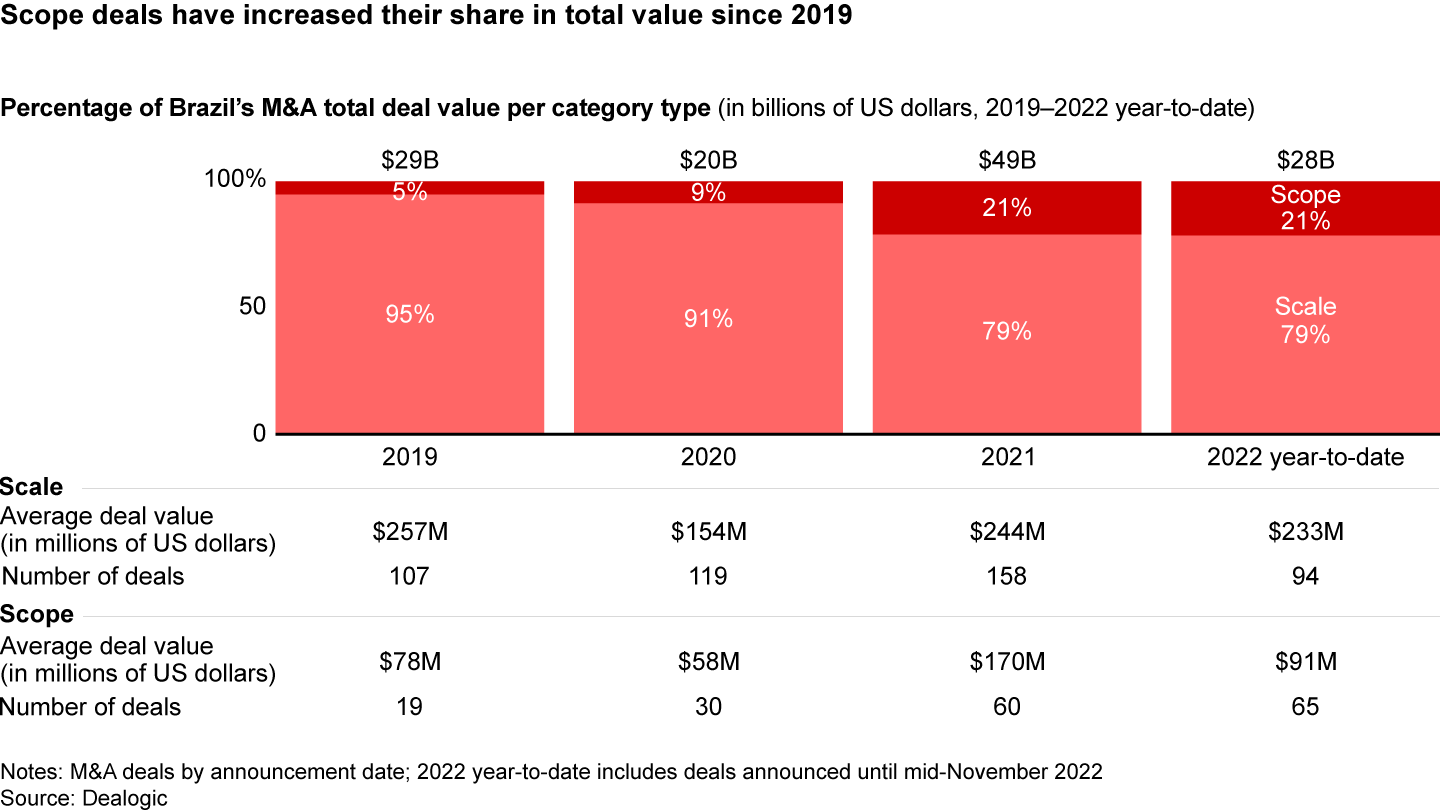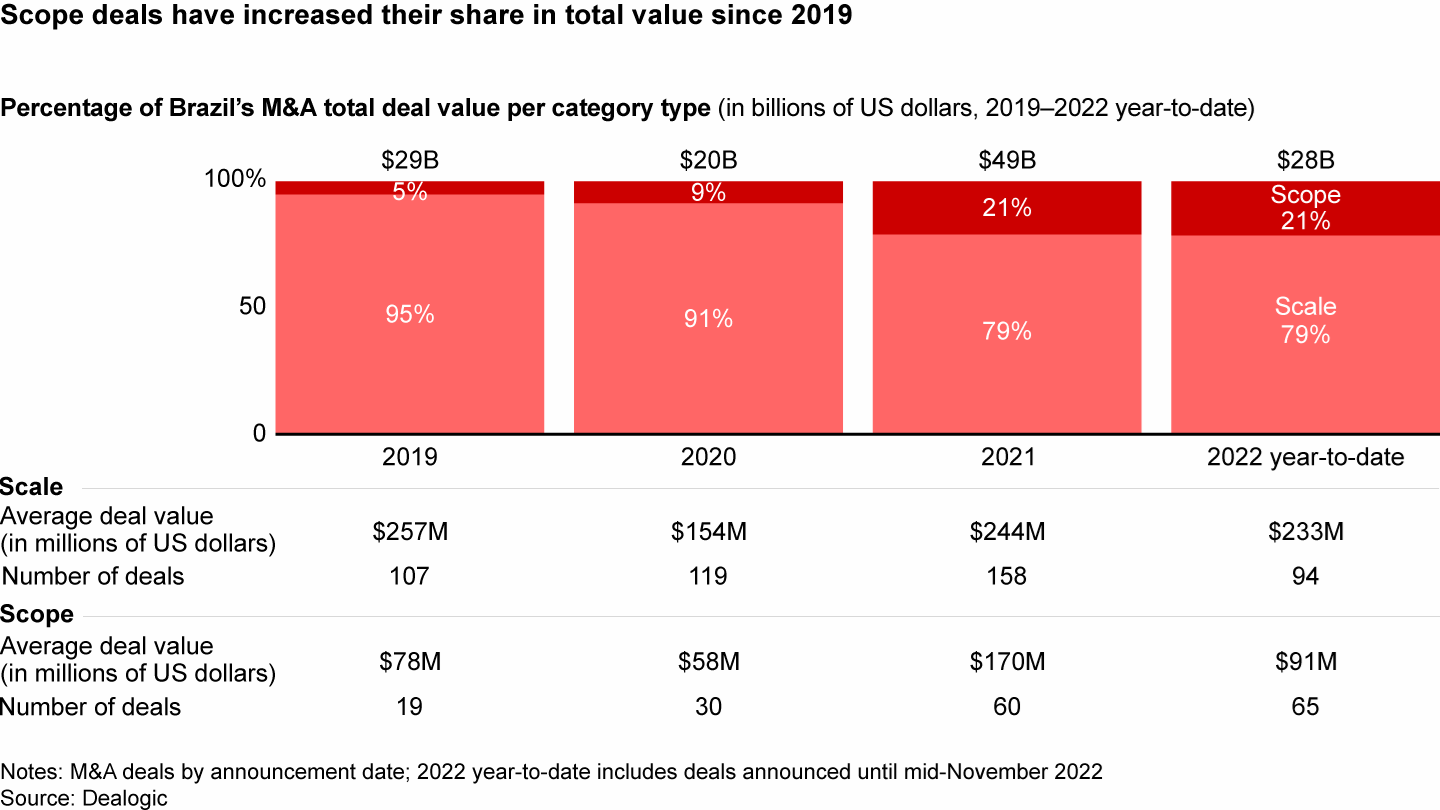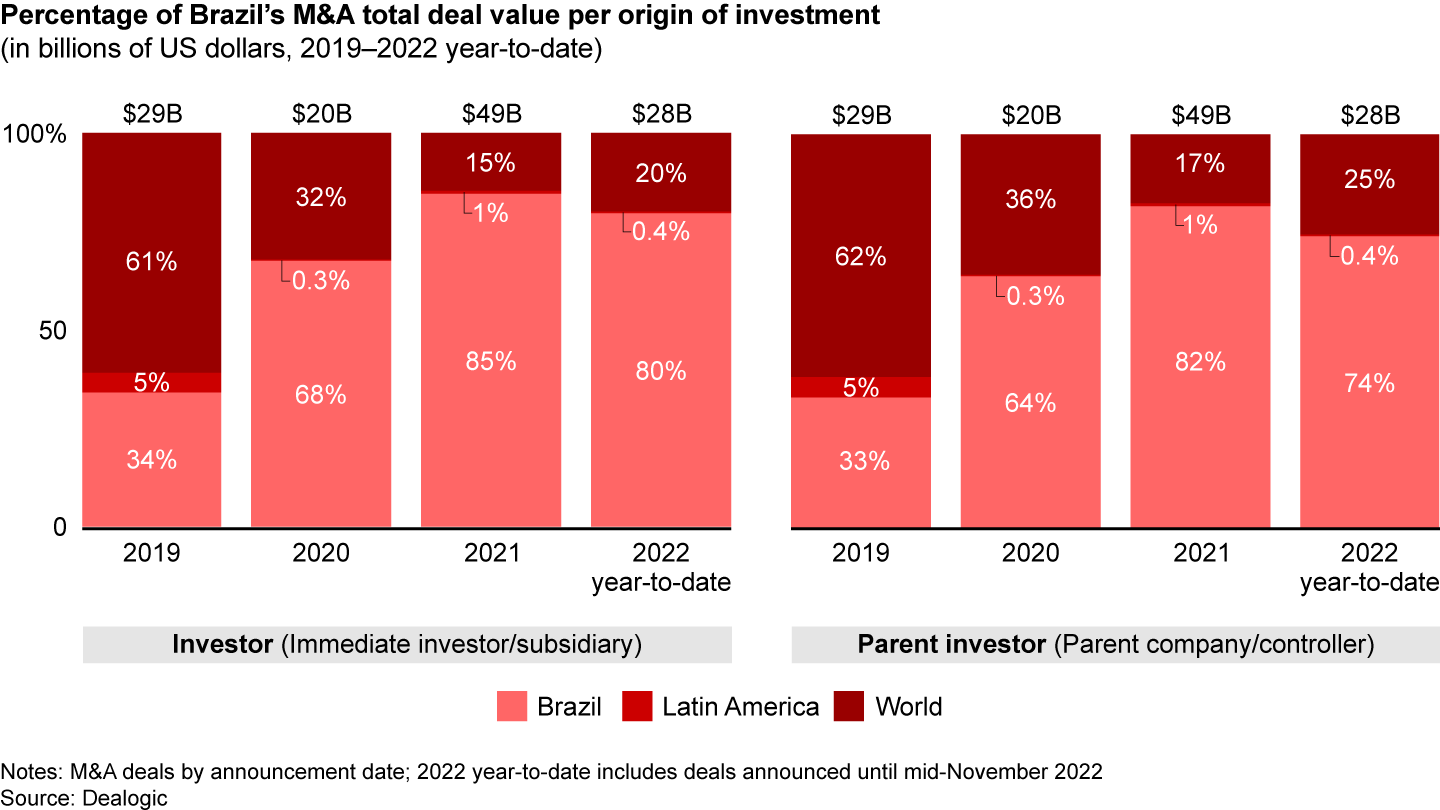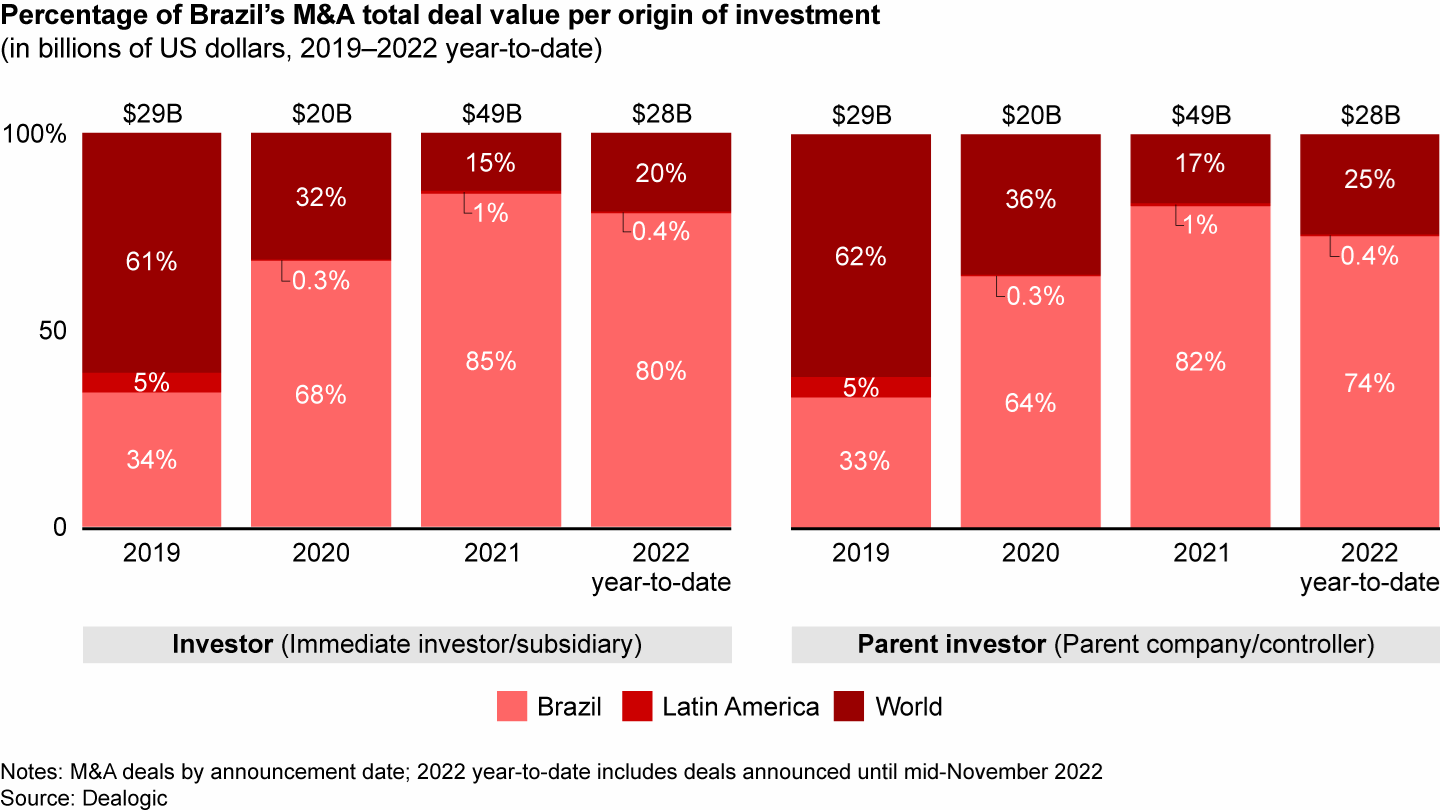M&A Report

At a Glance
- Even with a slowdown in activity and a reduction in deals valued at greater than $5 billion, overall deal value remained steady in 2022.
- Businesses are scenario planning for different potential outcomes while they wait to see what changes the newly elected government will make.
- Will international buyers seeking a safe haven from inflation as well as those motivated by a more climate-conscious new government invest in Brazil?
This article is part of Bain's 2023 M&A Report.
If ever there were a country in which M&A practitioners need to double down on scenario planning, it is Brazil. As former president Luiz Inácio Lula da Silva returns to power, business leaders know that substantial yet unpredictable policy shifts will be implemented. But until those new moves are made and until it’s clear how the world will react, the best dealmakers are systematically laying their game plans for the multiple scenarios that could occur—whether that’s a bump in inflation caused by an increase in government debt, for example, or a rise in foreign investment by those who feel the country is more stable than developing markets in Asia, or continuing political tensions such as those recently witnessed in the storming of the main institutional buildings of the country’s capital. Brazil’s economic trajectory could move in any number of directions, and the key to successful dealmaking will be rigorous preparation.
Similar to many other places, Brazil saw a dramatic rise in M&A in 2021. But that activity slowed in 2022 amid macroeconomic uncertainties, both global and local. Even with the slowdown and a drop in the number of deals valued at greater than $5 billion, overall deal values remained in line with pre-pandemic levels. While 79% of the M&A activity involved scale deals, there has been a rise in the number of scope deals, which represented 5% of all deal value in 2019 but 21% of that value in 2021 and 2022 (see Figure 1).


That’s still less than the global average, in which roughly half of all M&A deal value is scope, but it is a sign that Brazilian companies are discovering the benefits of these deals. In fact, the biggest acquisition in 2022 was a scope deal: Brazilian hospital chain Rede D'or purchased insurer SulAmerica for around $2.6 billion, combining the country’s largest hospital network with one of its major independent insurance companies. Two types of deals were particularly popular in 2022: those in which a company bought a supplier, client, or partner to better control the value chain; and deals for digital capabilities.
Brazilian companies are discovering the benefits of scope deals.
In 2022, two sectors accounted for 66% of deal value: energy and natural resources, and manufacturing and services. But a year earlier, health and retail deals were popular, too. It’s a shift that reflects companies’ concerns about the country’s economic ambiguity. Now, as companies prepare for an uncertain future, more deals will likely continue to be in industries that are more dependent on exports (such as energy and natural resources) than domestic consumption.
Another big factor in Brazil’s M&A prospects involves foreign investment. During pre-pandemic 2019, 67% of the country’s deals were fueled by foreign capital. That portion is now 25%, indicating a lack of international confidence in Brazil’s economic future—although that share did rise from 17% in 2021 (see Figure 2).


And some dealmakers are optimistic about foreign investment returning. For one thing, Brazil has been able to get a handle on inflation faster than many other major economies, largely because it has extensive expertise in combating inflationary pressures with a relatively agile central bank. Also, some US and European investors may view Brazil as a more geopolitically stable alternative for investing than many countries in developing Asia. Finally, a potential environmentally friendly agenda from the new government could make the country more attractive. Smart companies are preparing for the possibility that a further rise in foreign investments could present opportunities for divesting nonperforming or noncore businesses.
But it’s just one of the many uncertainties regarding Brazil’s market outlook and one more thing pressuring M&A practitioners to make deals more carefully than ever. That’s why concerns about the country's growth forecasts, inflation levels, and interest rates (among other factors) will require extensive use of multiscenario planning.
For example, revenue synergies have become increasingly important in justifying valuations paid. In the present uncertain macroeconomic environment, valuations based on revenue synergies will be under more scrutiny. That makes it even more important to conduct extensive due diligence of the market and the business being acquired, considering multiple scenarios.
Brazil has been able to get a handle on inflation faster than many other major economies.
The best companies will use scenario planning at two stages: first, to help them understand the situations in which they should buy, hold, or sell; second, if the answer is to buy, to perform due diligence that considers different scenarios, thus enabling potential buyers to adjust their valuations according to the future world they envision. It also helps them to be better positioned at negotiations.